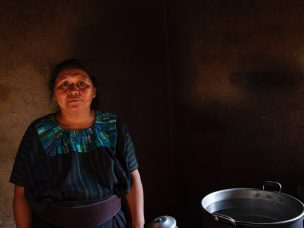Contributions
Sleep Disturbance and Sickle Cell Disease
Children with sickle cell disease (SCD) commonly experience sleep disturbance. This trouble sleeping affects their quality of life and is primarily the result of neurocognitive difficulties. So far, the relationship between SCD and sleep in adults has not been researched in detail. In this study, published in Annals of Hematology, researchers analyzed the relationship between SCD,...
Vitamin D and Pain Management in Sickle Cell Disease
For people with sickle cell disease (SCD), pain is the most common reason for visiting the emergency department. A reduction in pain could drastically improve quality of life for these individuals. This study, published in Complementary Therapies in Medicine, examines the relationship between vitamin D supplementation and pain related to SCD. This study relied on...
Pulmonary Complications in Latinos With Sickle Cell Disease
Among patients with sickle cell disease (SCD), pulmonary complications are the leading cause of morbidity and mortality. Due to the prevalence of SCD among individuals of African descent, research has primarily focused on how SCD impacts Black Americans, medically and socioeconomically. This study shines a light on SCD in Hispanic Americans. This retrospective study included...
Racism Harms Patients With Sickle Cell Disease
Sickle cell disease (SCD) is a painful disease afflicting over 100,000 Americans. Patients often deal with painful periods of vaso-occlusion associated with stigma, racism, and other adverse social outcomes. SCD is the most commonly detected condition in newborn screening programs. Although it is often associated with Black individuals, it is still commonly detected in the...
Acute Kidney Injury in Patients With Sickle Cell Disease
People with sickle cell trait and sickle cell disease (SCD) experience faster rates of GFR decline than people with normal hemoglobin phenotypes. This study from the Clinical Journal of the American Society of Nephrology sought to understand how acute kidney injury (AKI) risk compares in individuals with sickle cell trait, SCD, and individuals with normal hemoglobin phenotypes....
Racial/Ethnic Disparities in Stem Cell Clinical Trials
In a study published in Studies in Health Technology and Informatics, two researchers analyze racial/ethnic disparities in stem cell clinical trials. They note that racial/ethnic representation is critical in stem cell research because allelic polymorphism among races/ethnicities can affect stem cell compatibility. Moreover, these polymorphisms affect other clinical outcomes such as drug metabolism/sensitivity and treatment success. ...
Advancing People of Color in Clinical Trials
This article describes the creation of a clinical trial protocol to address the comparatively smaller numbers of Black patients who participate in clinical trials. The researchers note that people of color do not participate in clinical trials as often as white people and that the best way to encourage them to do so is not...
New Initiative Addresses Cancer Clinical Trial Disparities
Stand Up To Cancer (SU2C) is an initiative to improve the participation of Black, Indigenous, and People of Color (BIPOC) in cancer clinical trials. The SU2C team consists of doctors and scientists from four New York City institutions specializing in social science and clinical research. This team is a central component of SU2C’s Health Equity...
Diversifying Prostate Cancer Clinical Trial Recruitment
It is essential that the lack of racial and ethnic diversity in prostate cancer clinical trials be addressed to improve health disparities in racial/ethnic minority populations. This study suggests that population-based cancer registries could be used as a source for recruiting minority patients to overcome problems with diversity and inclusion in clinical trial research. In...








